How the MAT in Classical Education gave me a vision of human flourishing in the midst of hardship.
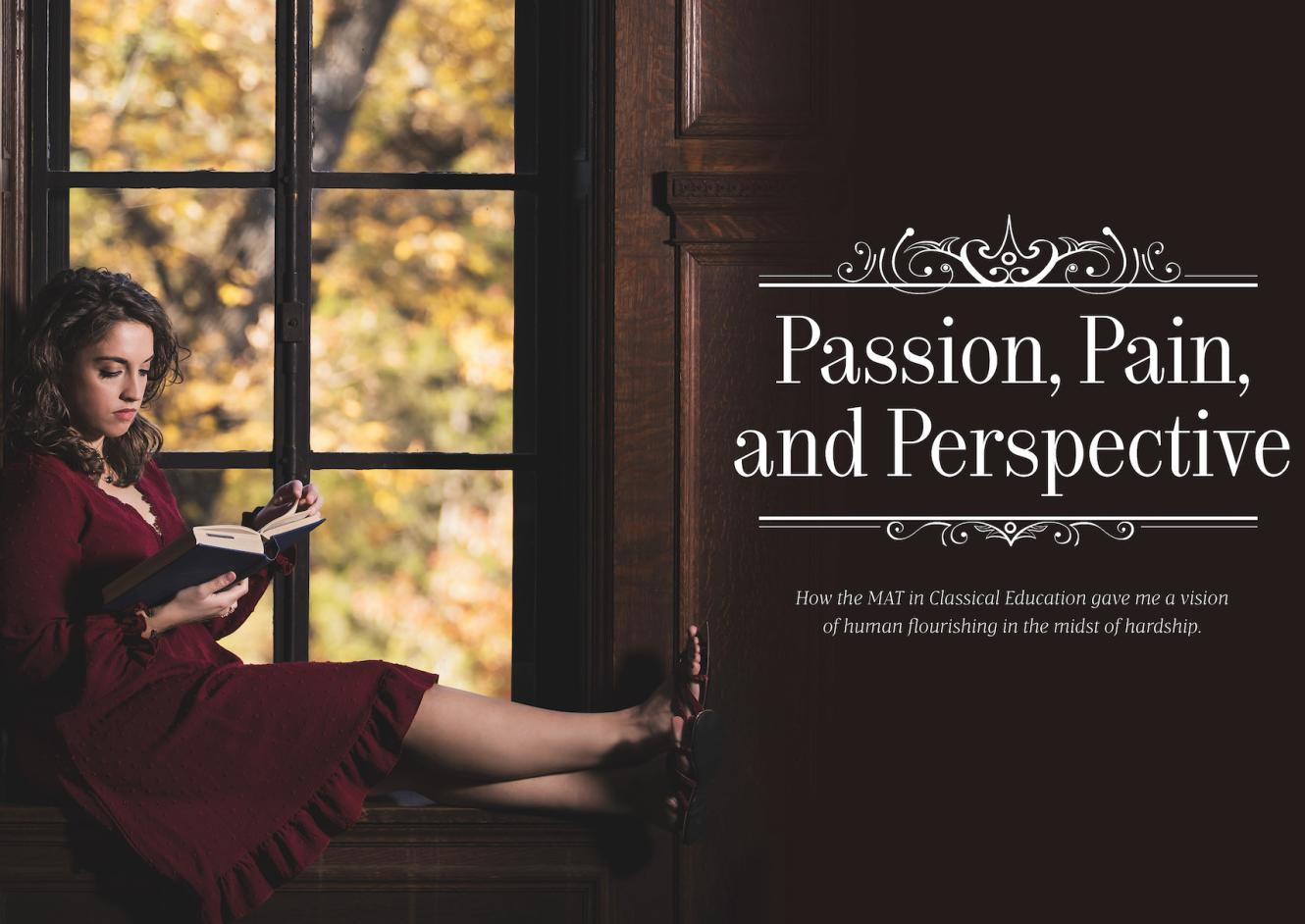
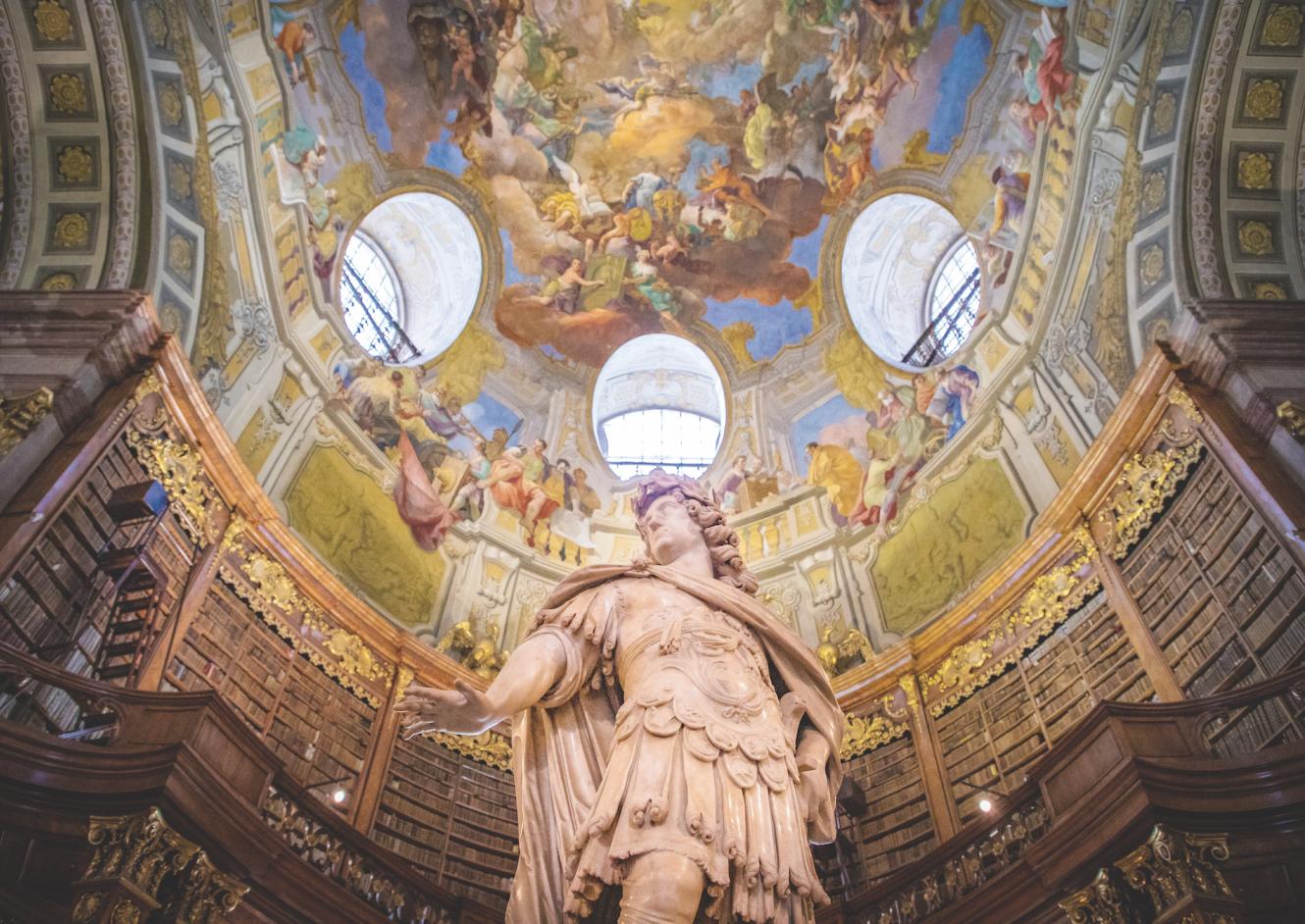
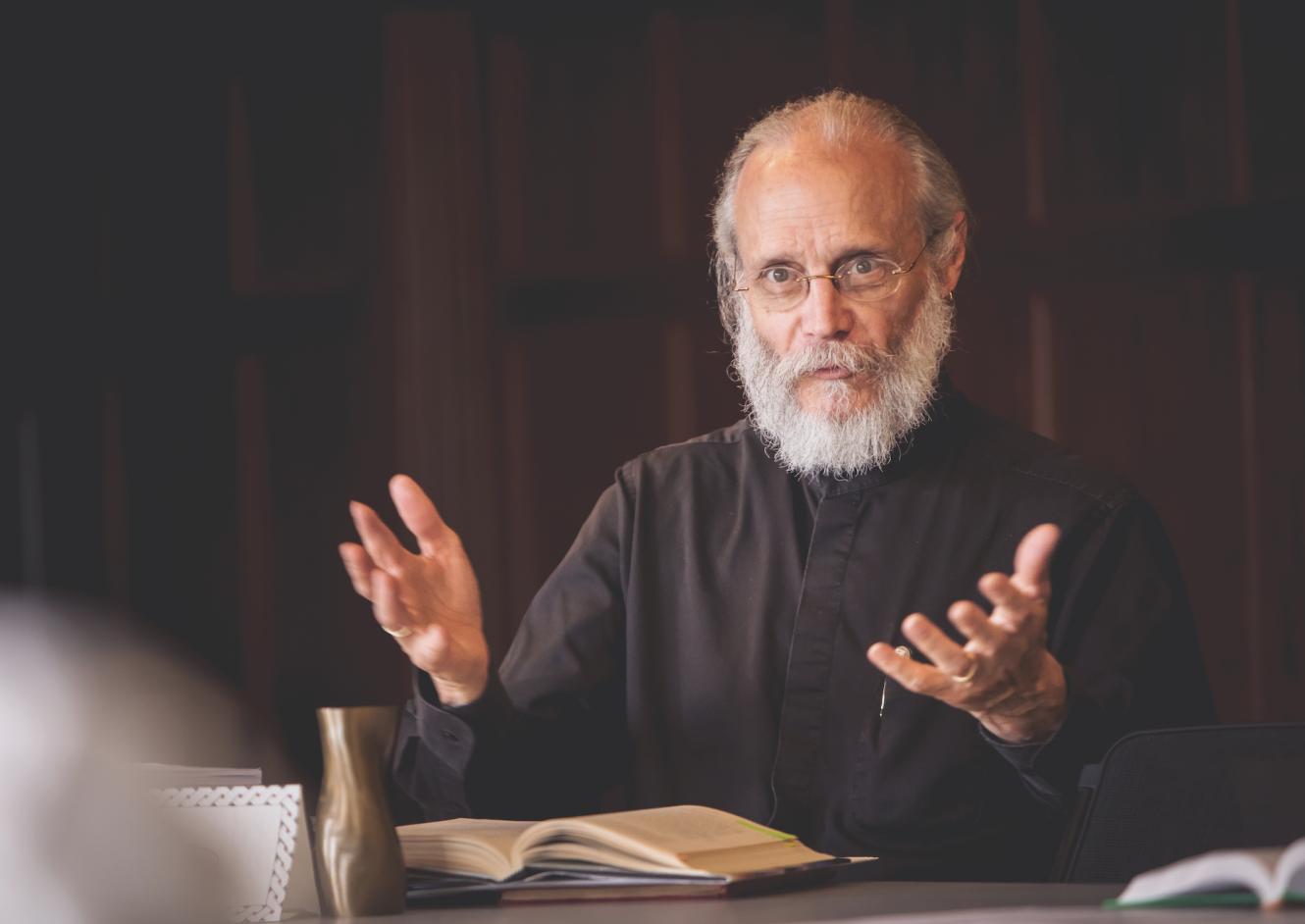
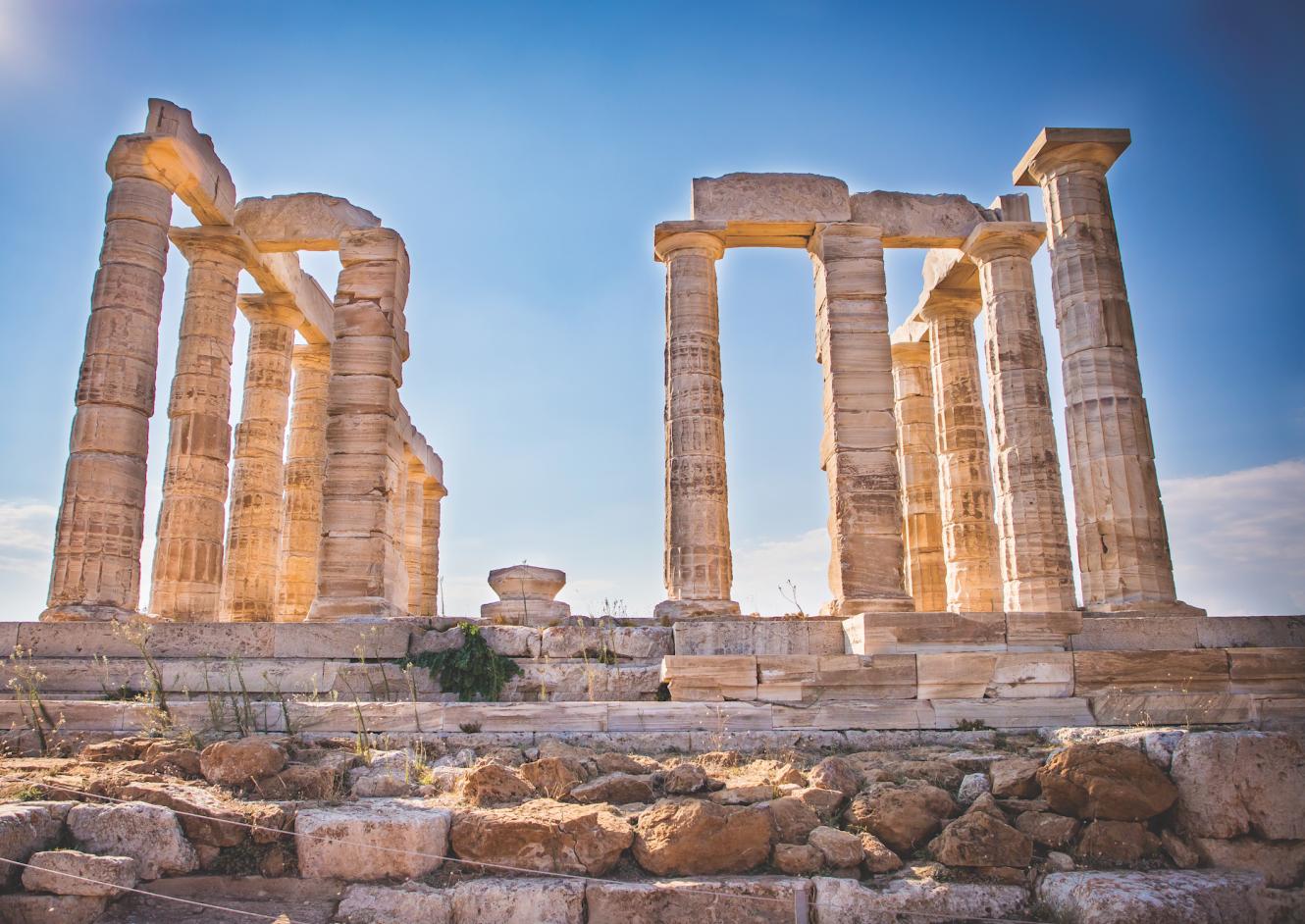


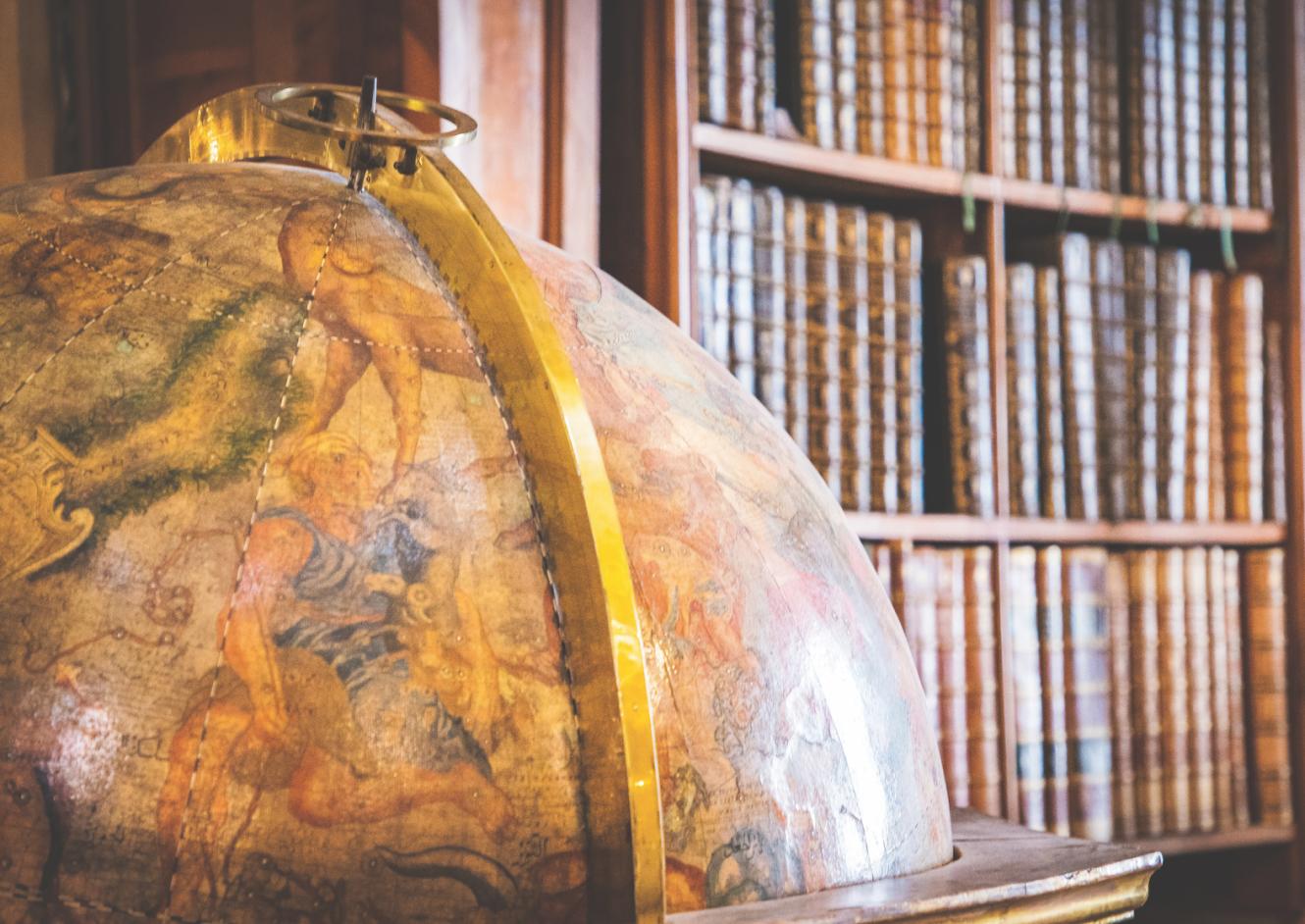
There are few things I enjoy more than a good story. Admirable characters, triumphs over evil, a satisfactory conclusion: what’s not to love? But what do we do when our stories don’t turn out the way we hoped? Not all stories have happy endings, after all, and some just never seem to end. Are those stories really worth getting excited about?
When I first enrolled in the Master of Arts in Teaching (MAT) in Classical Education program offered by Eastern through Templeton Honors College (THC), I was optimistically looking to reframe my own narrative.
Desperately in need of a change and weighed down by my own lack of direction, I hoped that enrolling in an interesting graduate program that nurtured my love for the humanities would help provide a new plotline for me and breathe new life into my story.
Without any particular career plans and with zero teaching experience, I anxiously enrolled in the honors program designed for classical educators. I didn’t know it yet, but being a part of the MAT program would quickly reveal a passion and a perspective that would deeply change me.
As I progressed through the courses, however, my personal plotline seemed to get worse. Each semester brought new tragedy into my life: three deaths, severe financial hardship, dangerous and discouraging diagnoses, broken relationships, traumatic experiences, public shame, deep betrayal from close family...the list goes on. My story was starting to resemble the biblical account of Job, and any hope I had for a triumphant plot twist was fading as my world crumbled around me.
Yet as I attempted to process my troubles, I found myself regularly referring to the timeless wisdom of authors we had read in class and applying points that my professors had stressed about human flourishing and virtue. Great thinkers throughout history such as Plato, Aristotle, Augustine, Josef Pieper, and more invited me into a living conversation about what it means to be fully human and how the pursuit of piety through education can point us towards our divine purpose as image bearers who glorify God and wonder at the world he has made.
Human flourishing, after all, is what classical liberal arts education is about. Rather than preparing students for mere vocational or intellectual success, the goal of classical education, according to THC Dean, Dr. Brian Williams, “is to educate whole persons through the accumulated wisdom of the ages for a lifetime of flourishing regardless of their profession or place of employment.”
This holistic approach has been modeled since ancient times and has the ultimate goal of producing what the medievals called “a beautiful being” who is better able to serve both God and neighbor through love for what is True, Good, and Beautiful. To live life well, then, requires not only an enlightened mind, but also a transformed heart. Teachers and students alike are seen as fellow characters in life’s grand story, making classical education about shaping better people for the glory of God, not just better workers or scholars.
This refocused perspective on education was so refreshing to me. Soon, my classes started to take on a healing effect as my own character was being developed through hardship. I began to see how both positive and painful stories can each teach us something beautiful about life. Instead of just longing for a change of circumstance, I needed a change of heart that would enable me to say like Christ, “Nevertheless, not my will, but yours, be done” (Luke 22:42).
After seeing the impact of classical education on my own character, I realized that I wanted to help students like me draw closer to God by examining their hearts and developing a better relationship with reality: the good and the bad, the beautiful and the ugly. I now saw myself as a character in a much larger, more significant story – one that’s been passed down through centuries and continues to move towards an ultimate ending that we already know: the coming of Christ and the establishment of his holy kingdom. If that isn’t a story worth getting excited about, I don’t know what is!
Now celebrating the completion of its fifth year, Templeton’s MAT program has grown significantly and produced an incredible group of scholars who are passionately serving God and neighbor in their various spheres of influence. Teachers from all over the country have inspired me with their own passionate pursuits and educational goals. Other MAT students continually encourage me by looking for new ways to apply course material to their passions in the arts, sciences, and even athletics.
And then there’s someone like me: new to teaching and unsure of what the future holds, but now a lot more hopeful. Sometimes the strongest passions can develop from the greatest pain. The Great Tradition is a fascinating story that ultimately points to the glory of God and tells the tale of human flourishing throughout history. My story is not my own, and I am not the main character – that role belongs to our righteous Savior. His is the greatest story ever told and to be able to pass that on to future generations in any way through classical education is an incredible responsibility, joy, and privilege.

